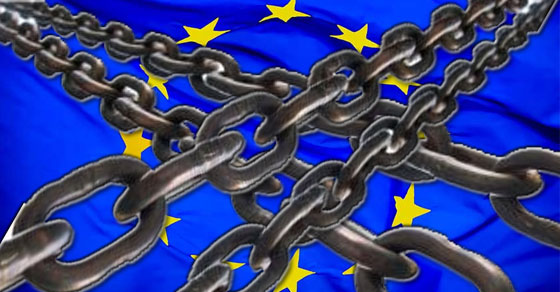While debtors, creditors, and economists focused on the Greek debt crisis, a report by European Commission President Jean-Claude Juncker with the heads of four other EU institutions went almost entirely unnoticed. Juncker proposes a predictably awful strategy for solving economic problems, greater centralization of power over the currency union’s economies. It recommended “quick fix” steps that could be introduced in the next two years, such as setting up a common bank deposit insurance system and promoting competitiveness, as well as longer term ideas, such as a common eurozone treasury.
You can see how one might reach such a conclusion. If one entity is going to control the money supply, an economic manipulation tactic often used by governments to smooth over economic problems, then one can see the reason in having that entity exercising greater economic controls over the economic policies that lead to such problems. It doesn’t make a great deal of sense for example, to have Greece spend without regard for consequences, while French and German taxpayers end up on the hook for their irresponsibility.

The flaw in this line of thinking however is that it begins with the assumption that the centralization which has already occurred is a good thing. It ignores the fact that said centralization is the only reason French and German taxpayers are on the hook for Greek debt to begin with. If other European countries are unhappy with their being bound to a nation irresponsible enough to address a debt crisis by electing communists, then ceding more control over their economies to a central authority hardly seems like a sound solution.
